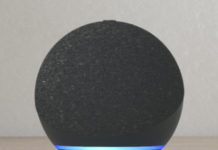
Here’s one that will surely stir the pot, highlight the differences between the bigger radio groups and smaller radio groups, and light up our comments section. In a blog posted to his new company website, Great Lakes Media, former Scripps and CBS Radio executive Tom Langmyer writes that local radio is a good business and national radio companies “distribute commoditized (white-labeled) music playlists and national political talk shows.”
Langmyer has been actively searching for stations to purchase and says local businesses and community leaders are telling him there is a great need for strong local radio and there’s a fear about the loss of local radio. “Radio is important to communities at all levels. The concern is local coverage will be lost and replaced by national content in a world of large national media conglomerates and holding companies. Leaders of local businesses, politicians, community groups, universities, local schools, owners of major sports franchises, and large local companies know the great value of radio — and don’t want to see local media go away.”
Langmyer also offers up his thoughts on what he sees happening in the big markets. “There are currently some major local radio institutions in big cities that are sitting ducks, just waiting to be further marginalized and warehoused by large conglomerates. Some familiar big-signaled, beloved, local giants are ripe for the picking to simply become clearance points for national syndication, produced by those huge parent companies. Of course, the hope in these communities is for local ownership. For big national radio conglomerates (whose stock prices are tanking), the strategy of warehousing more stations for scaling and to control share of business looks good on a financial statement. Perhaps it can appease Wall Street in the short-term as the conglomerates scramble for answers and a story to tell their investors and employees (“Hey, we’re going to buy _______, so we’re doing well, now. Right?”). In the longer term, these stations will merely become generic distribution platforms (carriers) versus vibrant local media businesses. In the end, revenue tanks and local people are the scapegoats. There are big, well-known stations across the country where this has happened already — and they’re done. We all know who they are.”
While national distribution and sales of globally produced merchandise is better for the consumer, Langmyer says local media content is different. “A new car is a lot cheaper when you buy it from a mega-dealer group versus a small family-owned business. Shampoo is cheaper at Walmart than at the locally-owned drugstore. But, radio remains successful as a LOCAL business. Why? Because local content is ‘manufactured’ locally and it’s sold locally within a single community or region.”
There are two kinds of radio, according to Langmyer, and that’s local and national. “National radio companies distribute commoditized (white-labeled) music playlists and national political talk shows. It’s sold on metrics, undervalued and easily duplicated across many platforms. Local companies create a local experience and local connection. It’s sold directly — and local radio achieves revenue success based on increasing a local advertiser’s business.”
Read Tom’s entire blog HERE.
Reach him by e-mail at [email protected]









I got disgusted with the commercial stations in Pittsburgh and nearby. i now listen to public radio, where i can hear jazz, but more importantly, i can hear real people talking to me instead of an automated voice. Things need to change in my area
I’ve gotten disgusted with the automated stations where i live near Pittsburgh. I have turned to public radio, where i can hear jazz but more importantly, i can hear live people talking to me. julebox stations turn me off
Thanks Tom for providing clarity and a way forward for the broadcast industry…along with skin in the game with your local market investments. Great Lakes Media will excel with your mission to be real, relevant and right now for local listeners. Let’s give credit where it’s due, no broadcaster ever saved their way to great prosperity, so the risks are palpable.
I’m busy managing a couple of local stations that strive to achieve the vision that you’ve outlined so well. We’re in the interactive creative communications business and that requires smart marketing to accompany rich local programming content. The revenue solution is with every local “non-traditional” business that’s hungry for business partners that will roll up their sleeves and them realize a return.
Meanwhile, we’ll watch you grow with the right perspective to bring ballast to our evolving industry.
Yes, Scott.
Radio being a “hot” medium – that is, a medium that attaches to listeners, primarily, with unconscious, emotional behaviours – the listeners are not picking any given station by assessing the station on an intellectual basis. (This even applies to the “talk” outfits. And absolutely to the religio-sticks.)
Their choosing a station is done on an intuitive and emotional level.
Since radio, with the exception of the playlist, has abandoned those consideration and, because of those practices, the stations are mixed into a vat of maudlin, unappealing, tasteless gruel.
While I was a broadcaster for several years, I haven’t been in the industry now for quite a while. I write books, give speeches, and consult with major companies on creating distinction in hyper-competitive marketplaces. I’m not writing that to be self-serving at all…just to suggest that what Mr. Langmyer has written is brilliant business strategy in ANY market, and perhaps especially in radio.
Customers/listeners do not choose your station. They choose it INSTEAD OF the other listening alternatives they can conveniently access. The challenge, it seems to me as an outside observer who still has great fondness for radio, is that many stations (and major ownership groups) are abdicating their competitive advantage.
Taylor Swift sounds the same on your station, Spotify, Sirius/XM, or my iPhone connected to my car or an at-home device. An interesting local personality, however, can only be heard on your station.
No customer in recorded history has ever said, “I LOVE them…I’m LOYAL to them…because they’re EXACTLY LIKE the competition!” Yet, as just a listener, I hear so many swimming in a sea of sameness that I find no compelling reason in my home town to choose a local station that primarily airs generic national content over other alternatives that speak to me. I think Mr. Langmyer has pointed out the right direction, for what it’s worth.
Yes, indeed, Tom, we are on the same stage.
To my mind and based on my education and experience, the key lies in the Delivery of all spoken elements – both on-air and in the generation of local spots.
A fantastic ideal would come from the leadership of radio to have the ability to “Poof” marvelous, articulate personalities across all day-parts and to, likewise, “poof” extraordinarily skilled writers of extremely creative “Creative”.
Both of those are highly unlikely even as a few examples do fall through the grates from time to time.
My contentions have always been about the necessity to re-train broadcast communicators in the fundamentals – and some nuances – of presenting to a radio audience.
“Creativity” would be relegated to a secondary position, although appreciated when it does occur.
Besides, I want to avoid getting into an argument with a pro who already has a good grasp of a situation. 🙂
Not being one to toss rat-parts on an otherwise semi-edible buffet, I can’t help but notice how commentators seem to operating on the premise or promise of “local content” being a panacea for much of what ails radio.
Local, geographical references, sponsoring and/or the promoting of local events, especially from “live” presenters, does sound like a jolly strategy for tricking a population into becoming another batch of gullible and, above all, loyal listeners.
That position is insulting to potential audiences everywhere.
The way out of the pit radio has dug for itself lies in the communicative knowledge and skills of the presenters and the writers.
And that, dear leaders… just ain’t happening.
Ronald,
I believe we might be saying the same thing. Or, at least I hope so. It may come down to your definition of what constitutes “local content.”
This local business needs more journalists, writers and smart, creative, engaging multi-platform communicators. Indeed, “local content” must be defined beyond the the simple use of a local geographical reference.
Strong, real, relevant content actually can be a panacea for local radio – versus another insipid local liner produced with Star Wars sound effects to “fool” a far smarter public than which many radio people ever give credit.
We need more people in radio that recognize what relevant local content really is – and that have the bandwidth and skills to create and produce it.
It goes far deeper than recorded liners that bark out the names of the local towns – but that’s the unfortunate limitation of many radio people.
That said, radio stations are at their best when they do more than act as a local jukebox.
If one wants a music “utility” it’s better to “use” Spotify or SiriusXM. Why? Because they are simply a much better music “utility” than traditional radio.
However, when one wants a good, unique, local “experience” that includes music, hopefully radio stations can can fill that need.
But that full “experience” is exceedingly rare.
On the spoken word side, there certainly are more opportunities than just political talk and sports.
That said, there is great opportunity in radio when defined as a full, interesting, entertaining and informative experience. And that full experience must include strong digital elements.
To your point, it is about leadership – and that needs to happen!
radio is a homogenized wasteland being run by greedy corporations who think nothing about buying globs of radio stations then going bankrupt so they can start over again. what a country we live in.
The only catch in local advertising is it doesn’t include most of the major chains, such as WalMart, Home Depot, and Macys. It also won’t include most of the online retailers such as Amazon. These are retailers that buy national radio. Then there are all the national restaurant chains, national services chains, and any of the stores you typically see in malls. They don’t usually do single station sales unless you’re very big or have some form of representation. If you want that kind of advertising and you’re a small individual station, you will have to make some kind of deal with a national radio service, and they work with major agencies, and will be based on metrics and ratings. As more local retail is being replaced by national and online, this will become more of a factor. So while it’s nice to think of radio as local, it’s becoming more difficult to do that when so much else has become national.
Thanks very much for your comment on the story. It gives me the opportunity to further illustrate the OPPORTUNITY for localism as a way to grow listeners, users and revenue. In no way did I ever say national advertising is a bad thing.
Unfortunately, through my examples of the differences between local and national brands as a way to illustrate how local radio is different, some are completely missing the point.
I am talking about generic mass-produced CONTENT that’s distributed by local radio stations. It’s NOT a story about National SALES. GEICO, Home Depot, McDonald’s, AutoZone and Walgreens are successful, in part, based on their belief in RADIO. And we in radio appreciate it, greatly.
That said, great local brands are not based solely on running a computerized playlist and waiting for transactional advertising business to fall from the sky.
Radio is a local content business that sells to both national AND local advertisers. Radio simply needs to do a better job of providing LOCAL content for listeners/user and local and national advertisers.
The biggest threat to radio is leadership. This is a time when there’s opportunity for great growth. However, so many leaders believe their job is to defend radio as it currently exists.
I want to encourage other leaders to spend more time pursuing GROWTH. We have so much opportunity in the LOCAL space to grow emotional connections with great local content across multiple platforms. This also means our industry needs to think of dashboards, podcasts and smart speakers as opportunities instead of threats.
But even more importantly, this means leaders need to think of local content and selling local experiences as the opportunity for revenue and profit GROWTH – as opposed to viewing it only as a threat to profit.
I have poured over the financials of major radio stations and groups – and now am looking at smaller stations and groups. The good ones get it. The others don’t.
I see that part in black & white.
Great point thank you for those insights
The article is excellent. It identifies the biggest problem in radio today…..the corporate groups who own the majority of the stations. When they buy out local ownership the product suffers, even in smaller markets. I’ve lived it. Programming investment is nearly non existent. Cutbacks always are first done in programming. The programming is generic and fails to take into consideration any local nuances of the market. Most of these companies remove local news and stop doing most outside promotions except for paid remotes. They run some kind of “community bulletin board” that is simply a laundry list of events they pirate off of social media. That’s their idea of being local. Today’s technology gives us so many chances to, more easily than ever, do great local radio. But, there has to be a programming staff, a vision on the direction of the stations and a clear desire to super serve our hometown advertisers and listeners long term.
The good news is great local radio is being done coast to coast. The bad news is that it’s mostly done by local and regional companies that have a real involvement in their communities, but get little publicity for their efforts. We’re judged, unfortunately, on the failures of the so called big boys. I’ve always felt that the biggest threat to radio is not from the outside, but from the inside where a lack of vision and the short term mentality of today’s radio leadership has squashed so much of the energy and creativity of the industry. But we can believe the real threat is Facebook and Google and the solution is to allow these companies to own more stations. I hope the FCC sees that for the farce it is.
Mr. Langmyer is spot on. Radio is a different medium than all others….it is one to one communication and local information more strongly connects the broadcaster with the listener.
Amen. Ditto that. And it has been forever and a day since the FCC truly assigned real value to the importance of serving the local community (in exchange for the right to hold a license).
What an idiot. I’m sure he is also hoping the internet eventually goes away so we can start communicating by falcons again.
Hi Jeff,
Thanks for your comments. It’s good to know, so I can better express the point you’re missing. Please take the time to read the blog for context or visit GreatLakesMediaCorp.com (a radio/digital company) to be informed.
My point is Radio (yes, with digital) has the opportunity create a better local media ecosystem. In no way is this an “either OR proposition.” It’s both. I’m a big digital guy. Trust me on that. Although, I must admit that falcons are pretty cool, too!
That said, local markets need local radio (audio) and a full and rich LOCAL media experience. I think we all can agree, radio as it exists today, is challenged.
Local radio, that actually means something, can be a leader to drive local listeners/users to a rich local experience (video/audio/stories/information) across all platforms – and, yes, that means DIGITAL platforms.
I’d be happy to talk further with you and anyone about the opportunity LOCAL radio/digital has as a great business.
The failed machinations of Big Radio have been in full view since Brett Favre started chucking “miracle” passes down the foo’ball field, and walking on water in the process.
Only the top one percent of the radio leadership are participating in their own prosperity.
Also, similar to Trump’s “Middle Class Tax Cuts”, the gullible and credulous not only buy into the bogus premise, they openly defend it.
Mr. Langmeyer’s position, while rare (in the sense of coverage) is still accurate, and it is welcome.
Plus, Brett Favre actually done it.
Big Radio has accomplished nothing for the fans and advertisers, and through its maudlin efforts, it has wrecked the business and bled out it’s own employee base.
Let me be the first to congratulate Mr. Langmeyer for his straight talk.
The consolidators have ruined Radio and their respective companies in the process. It’s funny, when I got into the biz music stations were trying to rid themselves of carrying network programs. Arthur Godfrey comes to mind. Radio has come full circle.